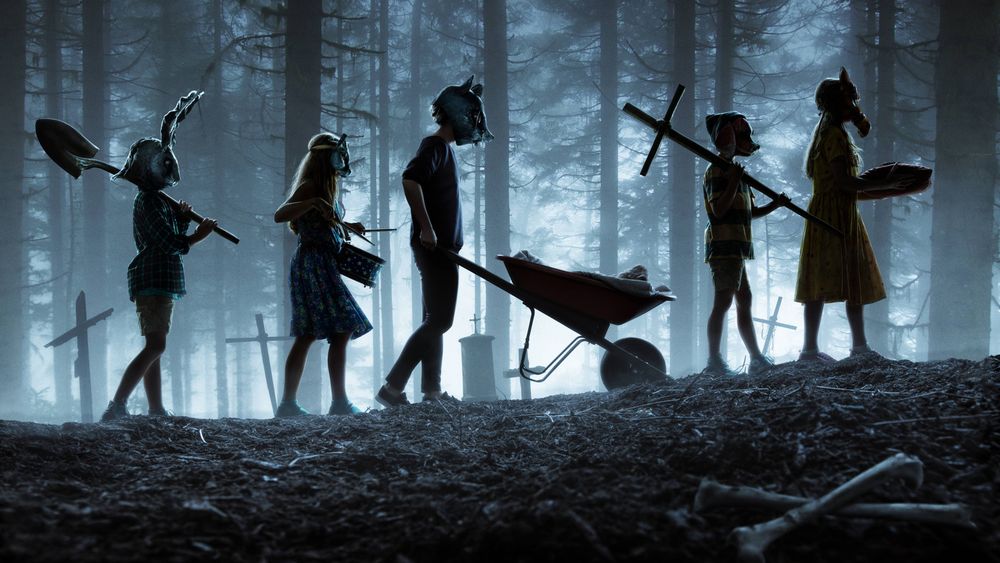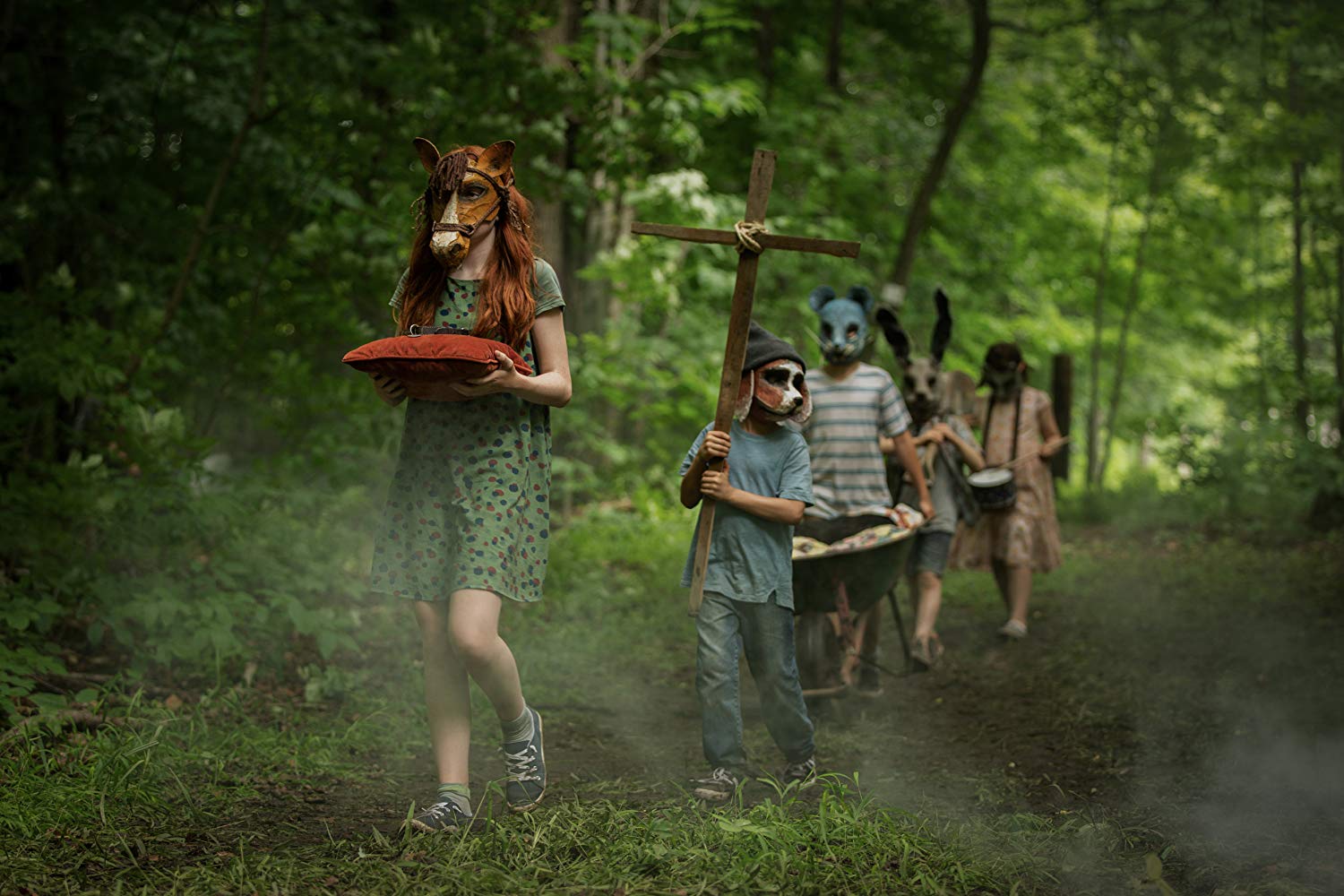King’s story is a good one. Dr Louis Creed (Jason Clarke) and his wife, Rachel (Amy Seimetz), relocate from Boston to the outskirts of Maine with their two young children. After the death of their pet cat, Dr Louis discovers a mysterious burial ground called ‘Pet Sematary’ (the misspelling adds to its creepiness) deep in the forest near their home… a burial ground that can bring the dead back to life. Screenwriter Jeff Buhler incorporates many of King’s idea into his screenplay. Pet Sematary is about the absolute nature of death and the tragedy that is losing someone you love dearly, particularly your young child. There’s a reason they say no parent should have to bury their child. Unfortunately, the Universe can sometimes be cruel, loathing and unfair. The film is about grief and how that can be a viperous emotion that’s unstable as a drug. It can numb your senses and make you do things you wouldn’t normally do. Dr Louis, the usually very pragmatic individual, at times, to his wife’s annoyance, suddenly finds himself face to face with the monster that is temptation, as he contemplates bringing his child back to life. But what does being ‘alive’ mean, particularly for a human being? Is it merely the ability to walk, talk and eat or does it also have to do with empathy and the ability to bond and build meaningful relationships; to care for and love others. Being alive is more than just a beating heart. It’s also about having a soul. A lot of this takes place in the surprisingly emotional first half of the movie. There is a scene — a scene I wish the marketing team didn’t include in the trailer — that is shocking, gut-wrenching and heartbreaking.
The writer and directors plant emotional and philosophical seeds that could’ve made for a great horror picture. The problem is, they never allow the seeds to grow into a tall and verdant tree. The pain that Dr Louise and his wife go through is felt only because of Jason Clarke’s and Amy Seimetz’s absolutely engaging performances, not because of the character writing. The characters themselves aren’t given enough room for their emotions to escalate and fester into something deeply agonizing. Towards the final act of the film, the tragedy of losing a child — which is the REAL HORROR — is substituted for a ridiculously cheesy zombie movie where corpses attack the living with knives. Some people may actually find this to be the most enjoyable aspect of the movie, but it didn’t quite work for me. In King’s book, the “zombie” is a manifestation of grief and depression. The horror-action sequences have philosophical and emotional weight. But here, it’s just a fun ride that gets wackier and wackier as it goes along.
At the very least, these scenes are handled with a certain level of grace and are thoroughly entertaining. Kevin Kolsch and Dennis Widmyer don’t resort to typical jumpscares (though, there are some) and loud music, but rather try to craft sequences that will genuinely make you gasp. All of this is anchored by solid performances across the board, not just from Clarke and Seimetz but also John Lithgow who plays the creepy but warm-hearted neighbour and Jete Laurence who plays one of the kids. Having said that, I wish the screenplay was a little bit more character focused and dense. Pet Sematary is one of King’s most frightening novels but this movie, just like the first adaptation of his novel in 1989 fails to understand what’s truly haunting about the story. I’ll give you a hint: It’s not zombies with kitchen knives.

